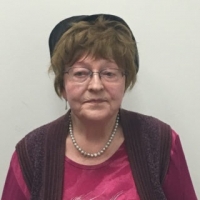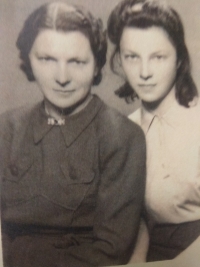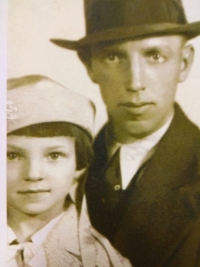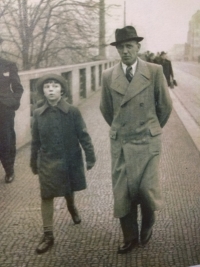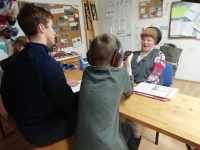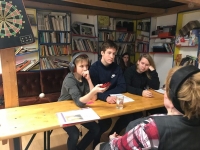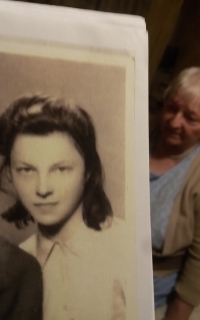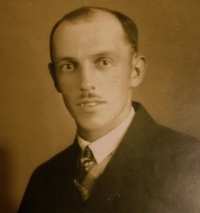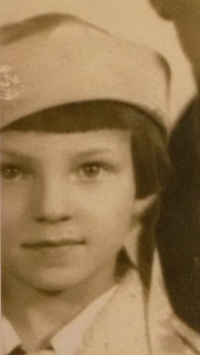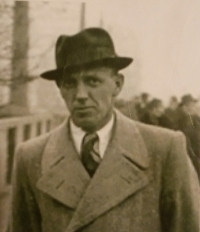There never were worse times than those during the Nazi occupation when they executed my dad

Stáhnout obrázek
Ludmila Hájková, née Mráčková, was born on the 13th of April in 1929 to the family of Vilém Mráček and his wife Ludmila. They lived in a workers’ neighbourhood in Holešovice, her father worked as a signaller at the railway station in Praha-Bubny. Before the Nazi occupation of Czechoslovakia, Vilem joined a paramilitary group of reserve soldiers, the Army Union of Czechoslovak Motorists, who were getting prepared for anti-Nazi resistance. In 1939, he started to work with resistance group Obrana Národa [Defence of the Nation]. His task was to distribute an anti-Nazi magazine, V boj [Into the Fight]. Ludmila was ten years old when she carried issues of the magazine under her coat and distributed it to households in Holešovice. In September 1940, her father was arrested by the Gestapo. For two years, he was detained and tortured and on the 5th of November in 1942, he was executed in Berlin. Ludmila attended high school at that time but as the daughter of the enemy of the Reich, she had to leave school. She got a work order and had to work in the ČKD (renamed to Böhmisch-Mährische Maschinenfabrik AG during the occupation) factory in Vysočany. She worked there as a line worker, cleaner and as a sandwich lady until the end of the war. In March 1945, she experienced an USAF air raid of Vysočany which damaged the ČKD factory. During the Prague Uprising, she joined the Red Cross and cared for injured victims. After WWII, she did not go back to high school but she studied at a business academy in Karlín instead and then she continued her studies at the Prague University of Economics and Business. She was a leftist and she joined the Communist Party of Czechoslovakia. After the 1968 occupation, her party membership was cancelled due to inactivity and she did not object. She worked as a clerk in the Centrotex company and later in the department of economy at the National Council of Prague.
